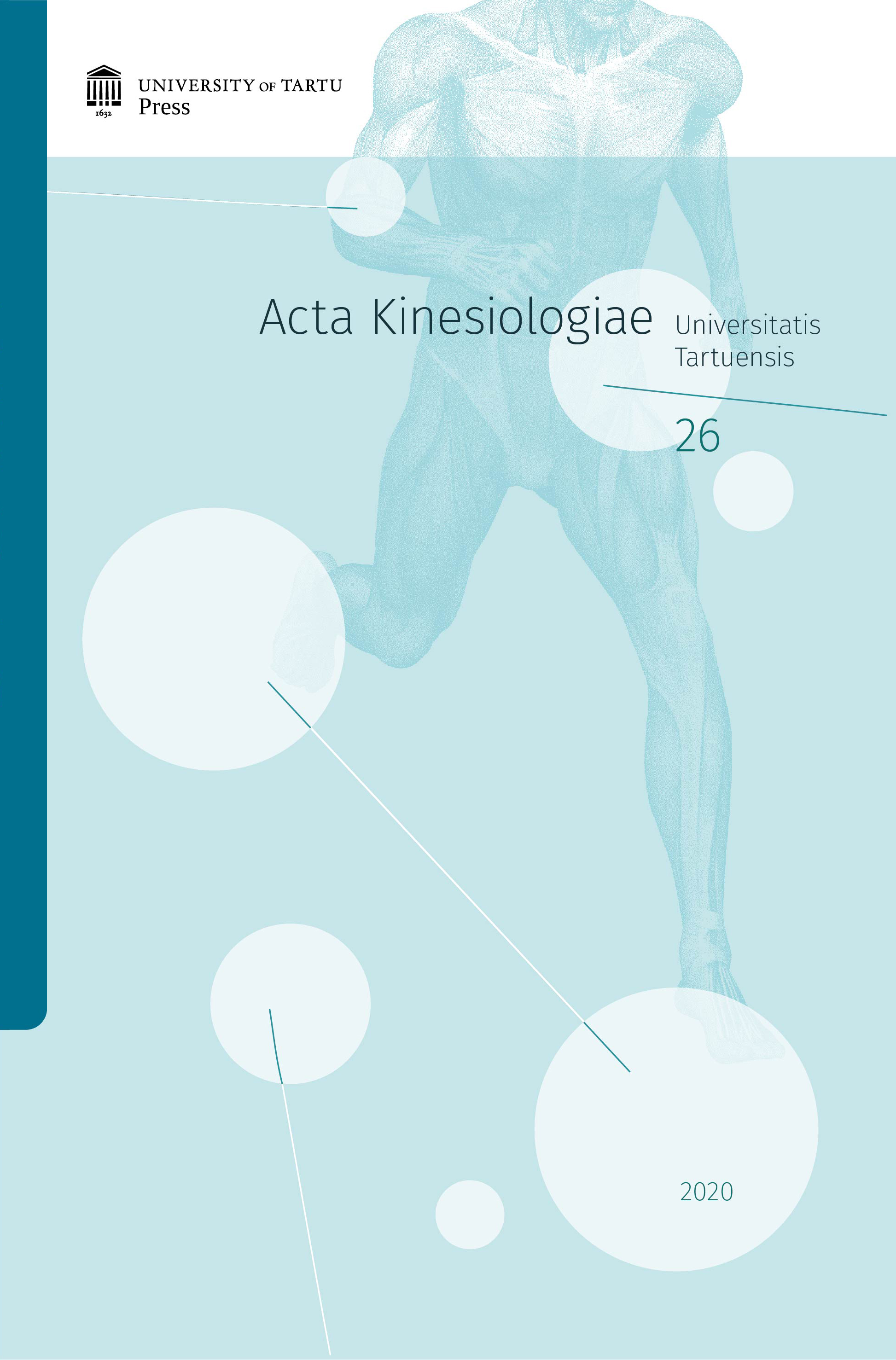The role of perceived coaching behaviours on sport performance among female aesthetic group gymnasts
DOI:
https://doi.org/10.12697/akut.2020.26.02Keywords:
autonomy support, controlling behaviour, psychological needs, motivation, sport performance, self-determination theoryAbstract
This study aimed to test the relations of perceived autonomy-supportive and controlling behaviours from coaches with athletes’ sport performance during competition in a context of female aesthetic group gymnastics. In line with self-determination theory, it was expected that the sequence of perceived psychological needs satisfaction and autonomous motivation, and psychological needs frustration and controlled motivation would mediate these relationships. Female aesthetic group gymnasts (n=128) ages 11–20 years completed self-report measures of perceived autonomysupportive and controlling behaviours from coaches, athletes’ needs satisfaction and needs frustration, including the need for novelty, as well as athletes’ autonomous and controlled motivation. Athletes’ objective performance during the competition was also obtained. Results from the single-indicator structural equation modelling analyses revealed a positive, indirect relationship between perceived autonomy-supportive behaviour from coaches and athletes’ performance mediated by the sequence of needs satisfaction and autonomous motivation. Significant indirect relationship between perceived controlling behaviour from coaches and athletes’ performance mediated by the sequence of needs frustration and controlled motivation was not followed. However, a negative direct relationship of controlled motivation, instigated by needs frustration, on athletes’ performance was evident. Findings suggest that perceived autonomy-supportive behaviour from coaches is an essential antecedent to athletes’ performance in a female aesthetic group gymnastics.


